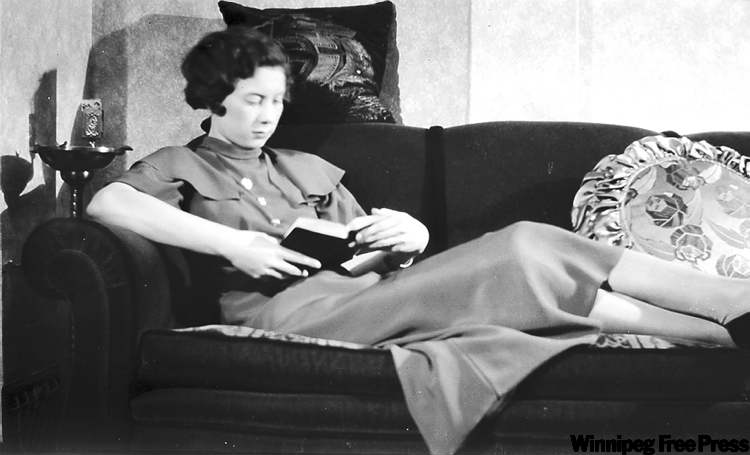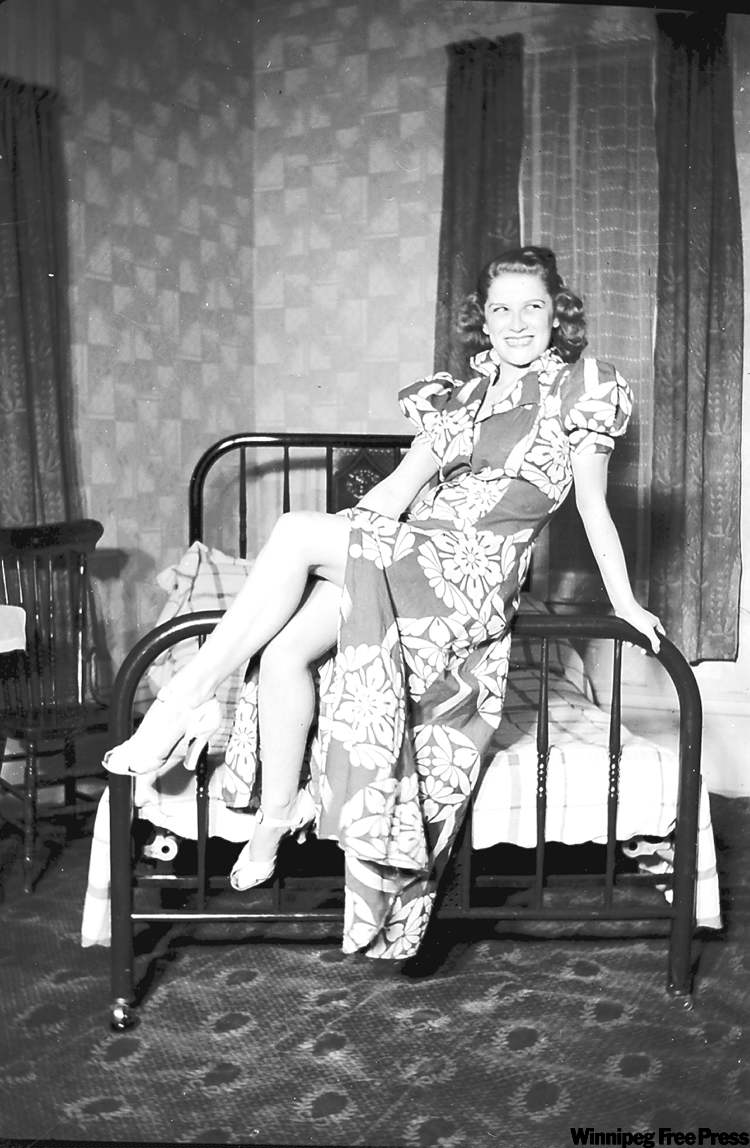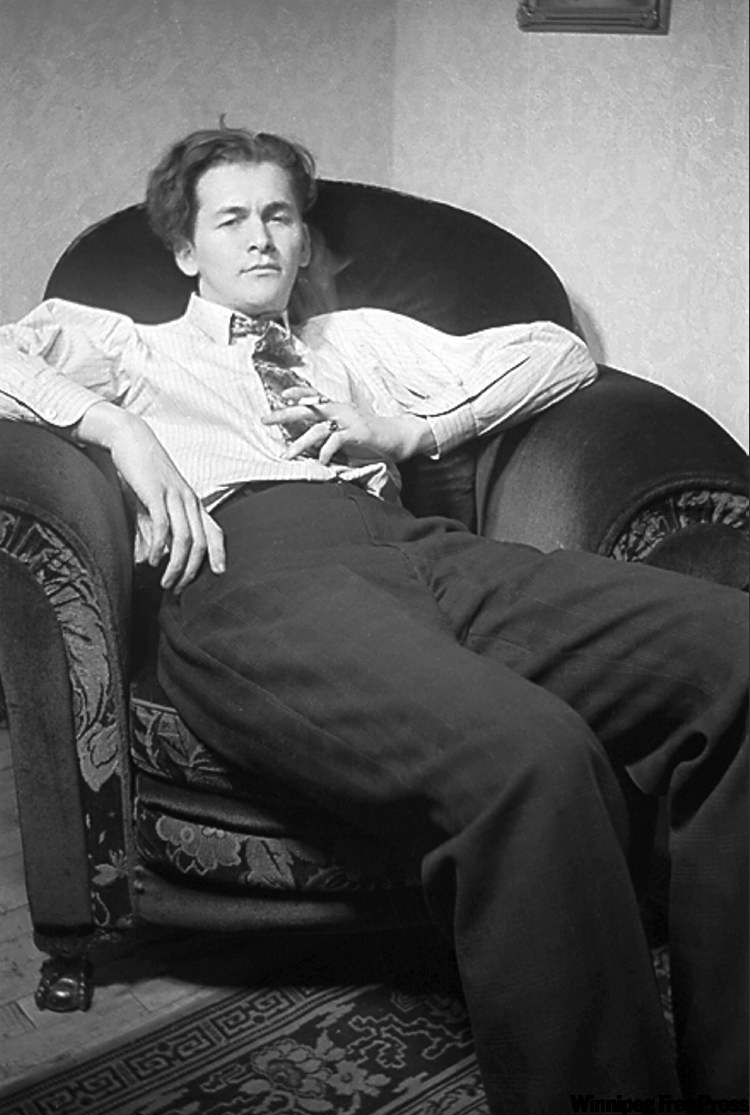Lost soldier’s images rare glimpse of past
Depict a vibrant society in Morden before the war
Advertisement
Read this article for free:
or
Already have an account? Log in here »
To continue reading, please subscribe:
Monthly Digital Subscription
$19 $0 for the first 4 weeks*
- Enjoy unlimited reading on winnipegfreepress.com
- Read the E-Edition, our digital replica newspaper
- Access News Break, our award-winning app
- Play interactive puzzles
*No charge for four weeks then billed as $19 plus GST every four weeks. Offer only available to new and qualified returning subscribers. Cancel any time.
Read unlimited articles for free today:
or
Already have an account? Log in here »
Hey there, time traveller!
This article was published 13/11/2011 (4790 days ago), so information in it may no longer be current.
One of many themes Nick Yudell of Morden explored in his photography was to photograph people reading.
It sounds like one step up from photographing people in their sleep but the photos have a strange appeal. He would place pictures in the background to give the idea that the reader was being transported to far-off adventures.
Sadly, Yudell’s life was cut short on his own far-off adventure. He was killed while flying a mission over Tunisia during the Second World War. He was 26. He was part of a mission to cut German Field Marshal Erwin Rommel’s supply lines in Tripoli. After his death, his closest cousin in the family that raised him, Milton Rabinovitch, could hardly talk about him. It was too painful.

But Milton, a member of the last Jewish family in Morden (there were seven Jewish families originally) who ran the Rabinovitch Store in downtown Morden, held onto one treasure. It was a box of negatives the budding photographer shot in the 1930s before he enlisted.
In 2006, several years after Milton’s death, his daughter, Celia Rabinovitch, an artist and University of Manitoba professor, was rummaging through her late father’s effects when she came upon the box of 240 Yudell negatives. Celia had returned to Winnipeg from teaching at the University of California, Berkeley.
She was amazed by what she found. Yudell had meticulously catalogued each photograph by date, location, time of day, lighting conditions, exposure time and people’s names. Not only did the photos display artistry — which Celia is in a position to recognize — but they depicted a side of life to pre-war times in a rural Prairie setting like Morden that had rarely been seen. Yudell captured Morden as a place of full of life, energy and “puttin’ on the ritz,” as Rabinovitch described it. Later photographs also provide a glimpse of the vibrant Jewish community of Winnipeg’s North End.
“It’s a record of how people lived and played at those times,” Rabinovitch said. Yudell not only created “a visual record of his time” but imbued his photographs with “an effervescent sense of life.” Morden was predominantly British at the time, with some non-Mennonite Germans and the handful of Jewish families mixed in.
Yudell’s specialty was more portraits than landscapes and streetscapes. But they’re not like portraits today where people try to look happy and successful, Rabinovitch said. “They’re not posy in any way. His portraits are fantastic because the people look so alive.”

Nick Yudell, the son of Russian immigrants, was born in Winnipeg in 1916. The family name was shortened from Yudluvitz. He lost his mother when he was two years old and was sent to live with his Rabinovitch cousins in Morden. The Rabinovitch family ran a menswear and dry goods store in Morden for 97 years until it closed in 1991. Among Jewish families who came out of the Morden area were Steinkopf, Tobias and Hyman families.
Yudell had a love for flying and hung around hangars, like at the old Steven’s Airport, as a youth. If Nick had lived, Rabinovitch said, “I don’t know if he would have been a photographer, or a pilot, or both.”
In early 1943, he piloted a Vickers Wellington II bomber under Royal Air Force command over North Africa when it disappeared. A letter home from Nick’s good friend, fellow Mordenite David Monoghan, urged the family to keep up hope Nick just might walk out of the desert yet, as some people had.
He was one of 34 men from Morden (and some from Winkler) who died fighting in the Second World War, and whose name is on a cenotaph in Morden’s Confederation Park on Stephen Street.
An exhibition of his photos will likely be displayed at the Pembina Hills Art Gallery in Morden in either 2012 or 2013. “It’s another piece of history of Morden we can learn something about,” said Morden resident Lenore Laverty, who is involved in displaying the project.

Rabinovitch has grants from Manitoba Heritage and the Jewish Foundation of Manitoba to restore the photos and develop them into a thematic exhibition. An exhibition is planned for 2012 at the Jewish Heritage Museum of Western Canada and the University of Manitoba Library and Archives. Rabinovitch’s work will result in a visual narrative titled The Lost Expressionist: Nick Yudell’s Journey in Photographs.
bill.redekop@freepress.mb.ca

